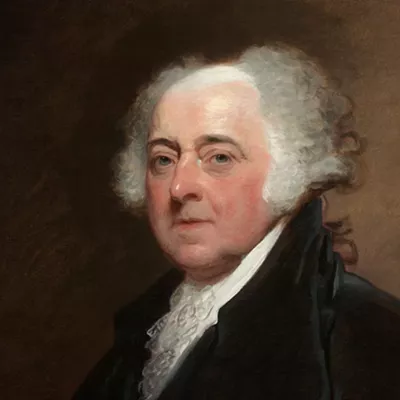Russia suffered its greatest humiliation yet in its unprovoked invasion of Ukraine on April 14, when Ukrainian forces sank the cruiser Moskva. Though a somewhat aged man o' war — it was launched in 1979 — the loss of flagship of the Black Sea Fleet is deeply embarrassing for the Putin regime. While Russia has been crowing about the "modernization" of its military over the past decade, the loss of an important warship to a country that doesn't really have a navy to speak of suggests that the Russian military is an arm of the Keystone Cops, rather than a major world power. The sinking of the Moskva also provided a welcome morale boost for Ukrainians locked in a David and Goliath struggle against the Russian invader.
Two centuries ago, Americans celebrated their own surprise naval victories during the opening months of the War of 1812. Just seven years after Admiral Horatio Nelson's decisive victory over the combined Franco-Spanish fleet at the Battle of Trafalgar, the British Royal Navy was humbled in a series of defeats at the hands of the United States Navy. The U.S. fleet was tiny in comparison with the Royal Navy. Moreover, the Americans lacked any ships of line — large battleships that could carry over 100 guns — which fought fleet actions in the Age of Sail. Instead, the United States maintained a small fleet of heavily armed frigates. More powerful than most British frigates and much faster than the wooden behemoths of the Royal Navy's battle fleets, the United States Navy played to its strengths by picking its battles.
Although the Royal Navy was preoccupied with its long struggle against Napoleonic France when the United States declared war on Great Britain in 1812, most neutral observers expected that the most powerful navy in the world would make short work of the Americans. They were wrong. On August 19, 1812, the USS Constitution captured the HMS Guerriere off the coast of Nova Scotia in an engagement that earned the American ship the nickname "Old Ironsides" for her imperviousness to British shot. Two months later, the USS United States captured the HMS Macedonia near the Azores in the eastern Atlantic Ocean, and in December, the Constitution struck again to defeat the HMS Java near Cape Verde.
American victories at sea in 1812, however, did not end the war. And this provides a cautionary lesson for thinking about the longevity of the Ukrainian conflict. The early successes of the United States Navy in single-ship duels boosted American morale, but they did not affect British naval supremacy. The Royal Navy established an increasingly effective blockade of the Atlantic seaboard in 1813, and in 1814 British forces launched an invasion through the Chesapeake that culminated in the burning of Washington, D.C.
While it is right that Ukrainians should celebrate the sinking of the Moskva, it is important that her allies realize that such victories do not win wars on their own. Logistics win wars. Ukraine's bravery must be matched by military and humanitarian aid from the West if it is to decisively defeat Russia over the long term.
It is difficult to see how Putin can back down from a conflict that he has invested with almost divine significance without losing face.
This conflict is far from over. The British government in 1812 found itself fighting a war that it had never wanted to fight. Even so, the conflict lasted over two years. Vladimir Putin, by contrast, chose this war. And even if he privately regrets his decision to invade Ukraine, it is difficult to see how he can back down from a conflict that he has invested with almost divine significance without losing face.
The War of 1812 ended when British politicians decided that they had had enough. Distracted by the Congress of Vienna, which redrew the political map of Europe in the aftermath of the Napoleonic Wars, and faced with voters who were sick of paying wartime taxes, the British government welcomed peace in 1814.
It is hard to see the endgame for Russia in Ukraine. For Putin, Ukraine is the main theater in its imaginary fight against NATO and the West. Moreover, Russia is an autocracy, and its elections are compromised at best. Many Russian citizens fear falling foul of the authorities. And for good reason: At least 15,000 antiwar protestors have been arrested across the country. Millions more are sold an alternative reality of the Ukrainian war through a constant bombardment of government propaganda. Under a new Russian law, to tell the truth about the invasion is to risk 15 years in prison.
President Joe Biden was right when he said that Putin cannot stay in power. This brutal conflict can only end when Putin is no longer president of Russia. But for that to happen in a repressive autocracy, the Russian people are going to have to suffer far greater pain and humiliation than the sinking of the Moskva before they are ready to run the scoundrel out of the Kremlin. ♦
Lawrence B.A. Hatter is an award-winning author and associate professor of early American history at Washington State University. These views are his own and do not necessarily reflect those of WSU.
























